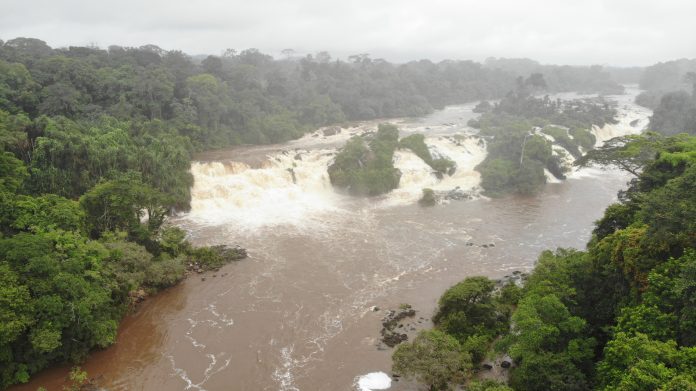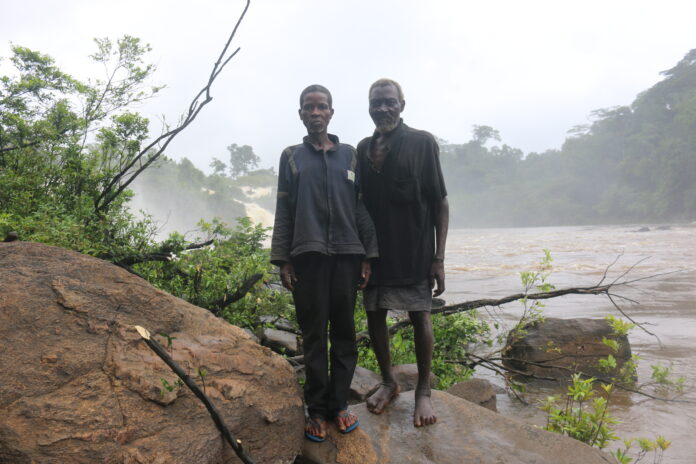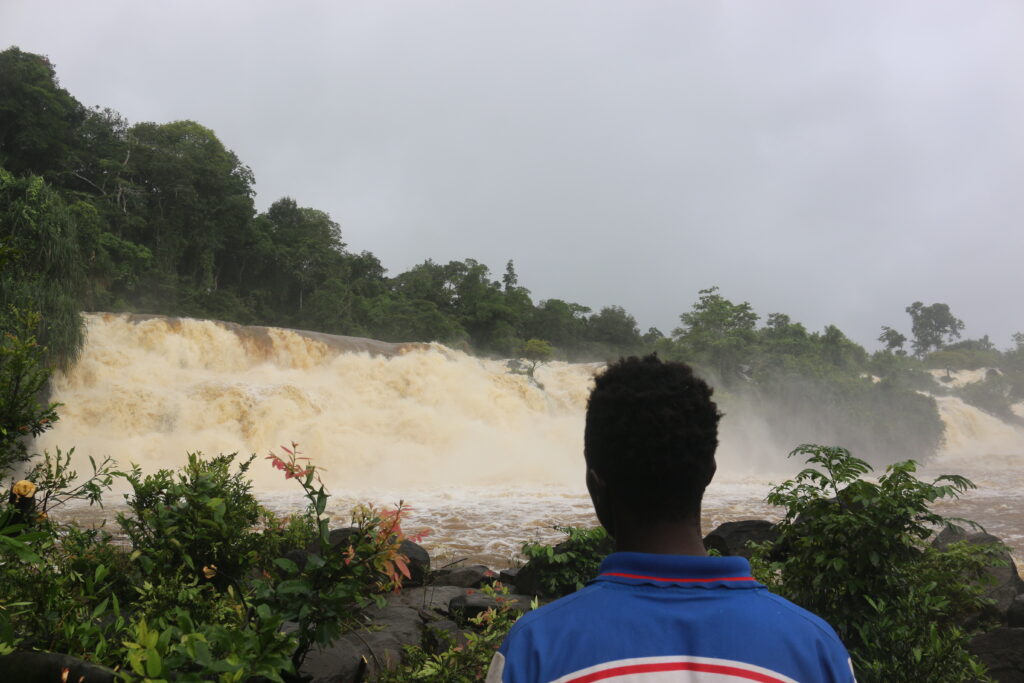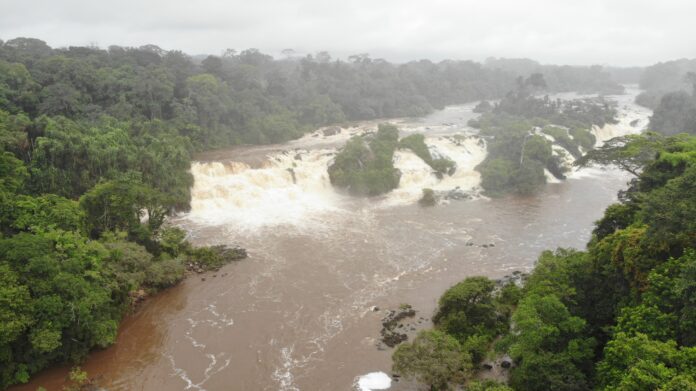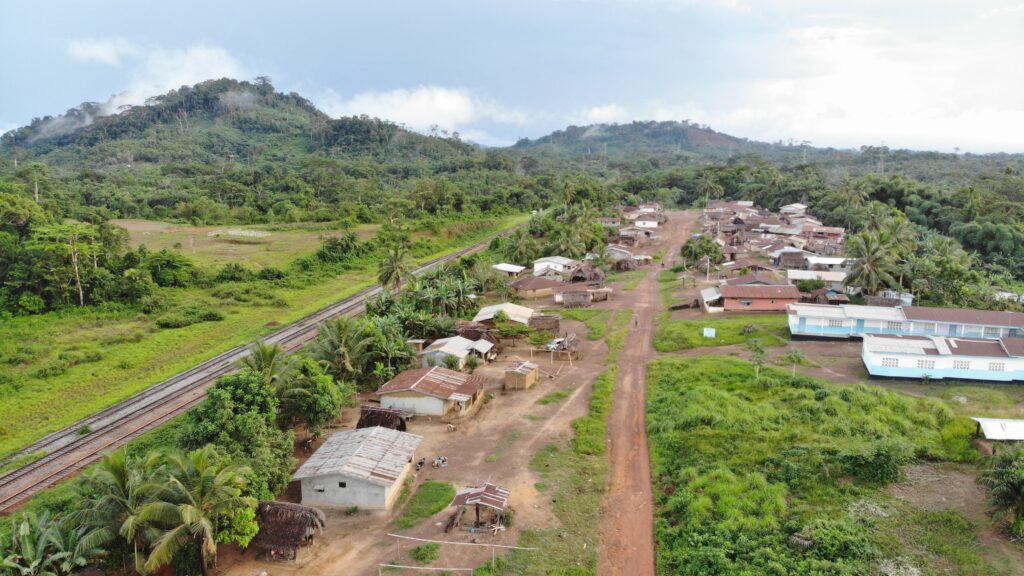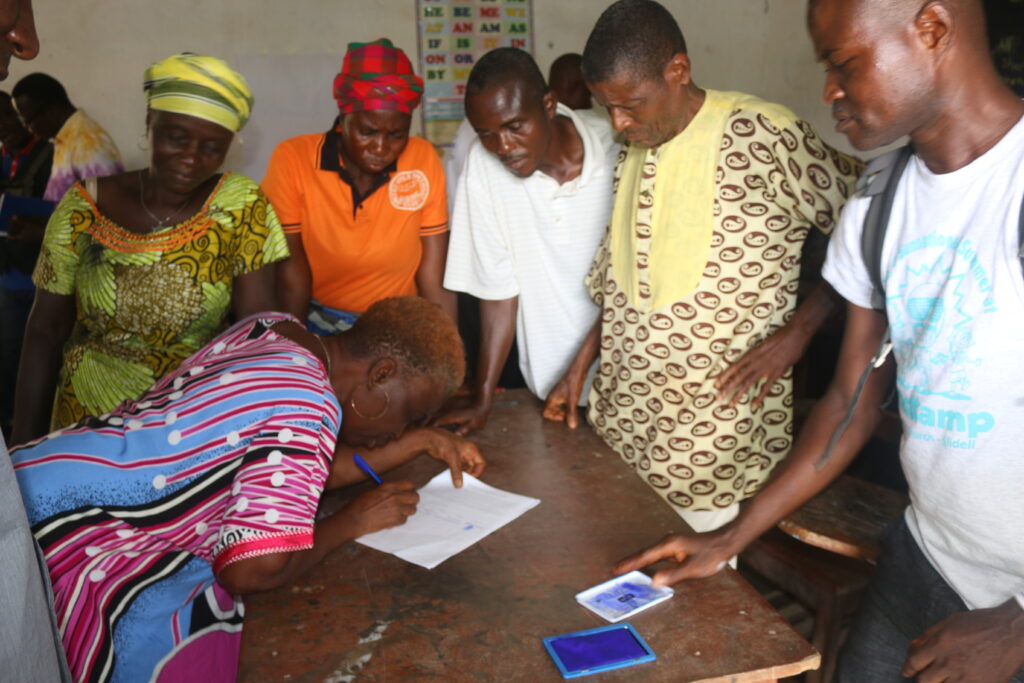Top: The Whorn Waterfall sits in Ceeyugar Town in the Quikon Clan of Kokoyah District, Bong County. The DayLight/Derick Snyder
By Esau J. Farr
KPELLETAY TOWN – A man has sued seven townsmen for dismantling his cornerstones and signboards in a conflict involving a large parcel of land in a Bong County clan.
The items represented Ceeyugar’s self-proclaimed 8,866 acres of land in the Quikon Clan, near the famous Whorn Waterfall on the St. John River.
The men were charged with criminal trespass, criminal mischief, menacing and disorderly conduct, court documents show.
“On May 3, 2024…you Samuel Monway (and others) unlawfully, intentionally and purposefully went on the land of David Ceeyugar in group and without his permission, damaged his cornerstones with four signboards,” their arrest warrant read.
Ceeyugar seeks US$1,900 in damages. However, he failed to present documents to support his claim in a July hearing. Former Sub-Kokoyah District Commissioner, Mary Queminee, had also rejected the letter of administration.
The accused deny any wrongdoing, saying the land in question is part of the Quikon Clan’s estimated 25,000 acres.
“We will make sure that our land is not taken away by anybody, including David Ceeyugar because the land is not for him,” said Tripple Zisus, one of the suspects and Secretary General of Quikon’s community land development and management committee (CLDMC). A CLDMC manages customary lands for a community and represents its interest in concessions, based on the Land Rights Act. Zisus spoke to The DayLight in Kpelletay, one of Quikon’s 18 towns.
Quikon Clan started the process of getting a deed last year. It is being guided by a Bong County-based NGO, Parley Liberia, and is currently harmonizing the boundaries with neighboring clans.
The suspects said Ceeyugar’s survey of the land was dubious. They said there were no survey notices and no participation from nearby neighborhoods.
Isaac Gbenyan, the Commissioner of Kokoyah Sub-District told The DayLight the clan only heard about the land when it was already surveyed. The chiefs of Kpelletay Town and Rock Crusher corroborated Gbenyan’s account.
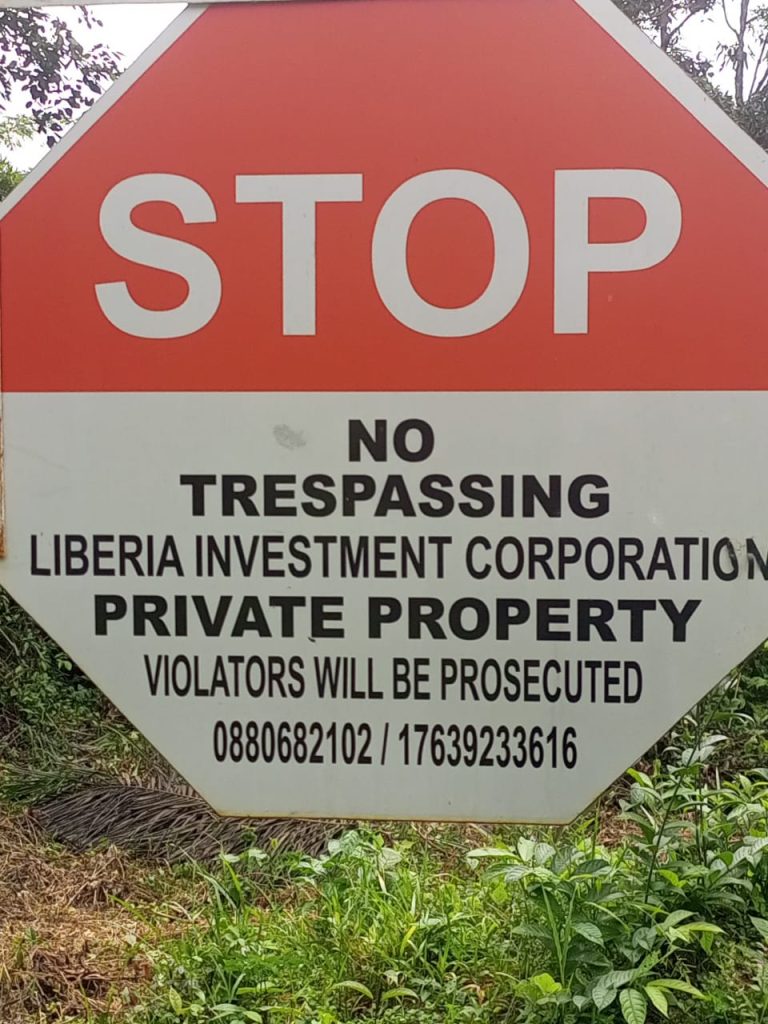
Asked what he made of the case, David Kangar, Quikon’s CLDMC chairman, backed the suspects’ actions.
“That is not a case. It is a carton. [Ceeyugar] does not have grounds, stance and witnesses. He just wanted to take it falsely,” Kangar said at his home in Kpelletay Town.
The story comes nearly a year after The DayLight exposed an illegal transaction involving some 300 acres of the clan’s land between a former lawmaker and a now-deceased elder.
Last year, deceased elder John Loway admitted to entering an illegal deal with former Representative of Bong County District Number One Albert Hills, Jr. The transaction took place in 2019, months after the passage of the law, which Hills signed. Family and other sources said the deal was valued at about L$400,000, something The DayLight could not independently verify.

